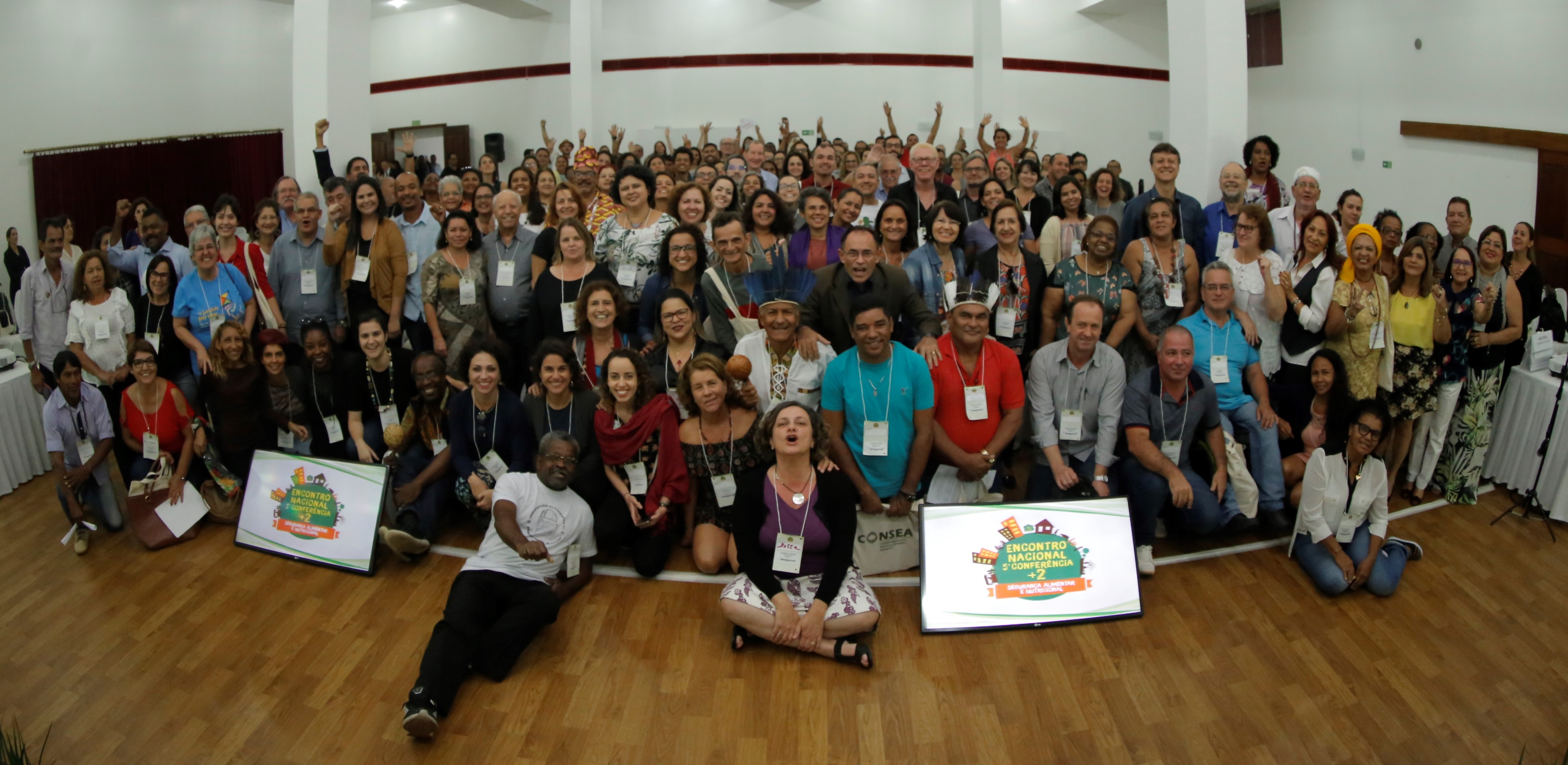
National meeting on food security and nutrition, Brazil, 8 March 2018.
©Consea Segurança Alimentar
Science knows how to defend the right to food. Experts – like the High-Level Panel of Experts on Food Security and Nutrition (HLPE-FSN) of the Committee on World Food Security (CFS) – have been showing us the way forward for decades and now advocate for an urgent and radical transformation of our food systems at all scales1. The Panel's reports always seek to bring the most recent and reliable scientific evidence articulated with the best policy practices that can inspire and support countries to implement effective programmes. It is the turn of institutions to pay attention and translate into reality the recommendations they receive for a more equitable and fair future for all.
Fighting against hunger marked Luiz Inácio Lula da Silva’s campaign in 2022 and, right upon taking office on January 1 this year, Lula pinpointed the fight against hunger as his top priority, since a combination of political and economic factors led the country to backtrack on the results that had been achieved.
Consequently, the National Council for Food and Nutrition Security (CONSEA) was resumed on the first day of the newly-elected Administration: on Tuesday, 28 February 2023, President Lula signed off on the resurrection of the CONSEA, with the same composition as when it was abolished, in January 2019, by former president Bolsonaro.
This multisectoral advisory body to the Presidency of the Republic is a space for participation and social control in the formulation, monitoring and evaluation of public policies on food and nutrition security and is considered a cornerstone in the fight against food insecurity and hunger. The council is composed of 20 ministries and 40 civil society organizations.
The Council, which I have the honour to serve as President, it is the legitimate space to converge and articulate all the dynamics and commitments of the government and will allow us to better defend the right to adequate food. We will be firm, involve civil society and will not surrender.
The civil society is made up of nongovernment organizations, professional associations, foundations, independent research institutes, community-based organizations, people’s organizations, social movements and labour unions. It includes coconut breakers, fishermen, indigenous people, family farmers, peasants, black men and women, representatives of all the regions. It includes all of us.
We all should care about food security and nutrition, a critical political issue in Brazil, a vital issue in most of the countries of the world.
Brazil produces enough food to adequately feed its entire population, nonetheless hunger is on the rise. The estimate of Brazilian grain production in the 2022/23 forecasts a production of 312.2 million tonnes. The volume exceeds by 15% or 40.8 million tons the harvest of the 2021/22 crop. This is the same country where the results of the National Food Insecurity Survey (2021/22) indicated that more than half of the Brazilian population (125.2 million people) has some degree of food insecurity and 15% (33.1 million) are severely food insecure (hunger).
This apparent contradiction calls us to expand the model of participatory governance of food and nutrition security, where public and common interests are the reference for decisions on public policies, budget allocation and definition of priorities. The only way to sustainable results is to articulate short-term actions to mitigate hunger guaranteeing healthy and adequate food with structural changes directed at the roots of inequalities in the country.
-as-an-important-tool-for-the-fight-against-hunger.jpg?sfvrsn=e49cb826_1)
1 HLPE. 2020. Food security and nutrition: building a global narrative towards 2030. A report by the High Level Panel of Experts on Food Security and Nutrition of the Committee on World Food Security, Rome.
Elisabetta Recine is the president of the Council for Food and Nutrition Security of Brazil. Nutritionist, PhD in Public Health, member of the HLPE-FSN Steering Committee (2017-2019, 2022-2024), professor at the University of Brasília, Brazil, Department of Nutrition, Faculty of Health Sciences, member of the Steering Cpmmittee of the Brazilian Alliance for Healthy and Adequate Food a network of civil society organizations and academics for FNS policies advocacy, as well as member of the Advisory Committee - Brazilian Network for Research in Sovereignty and Food and Nutrition Security.
The views and opinions expressed are those of the author and do not necessarily reflect those of CFS nor its HLPE-FSN.